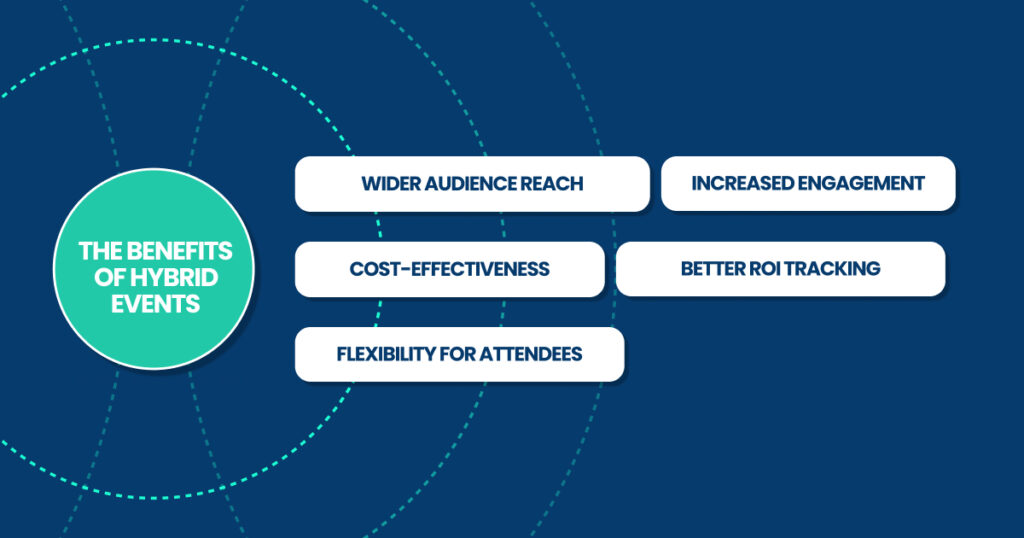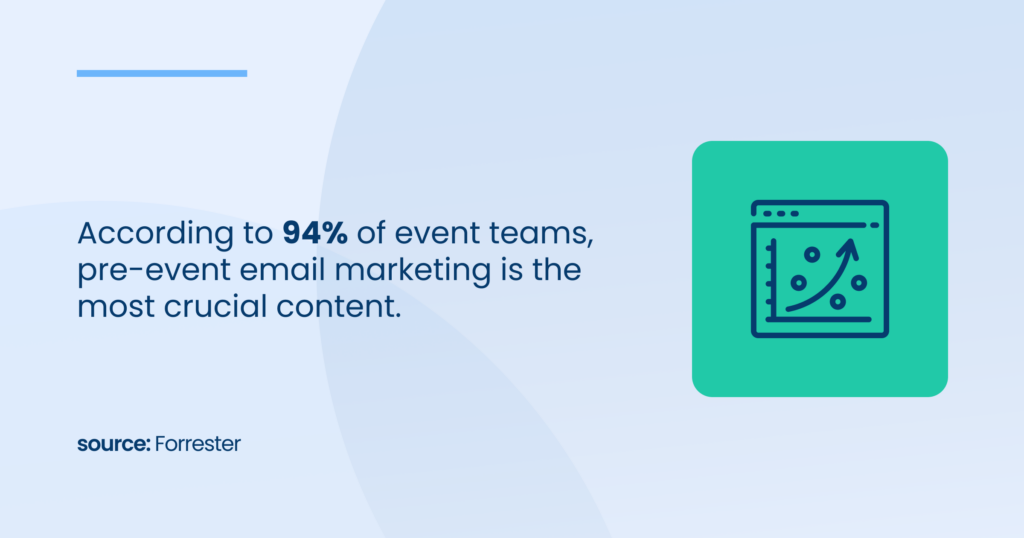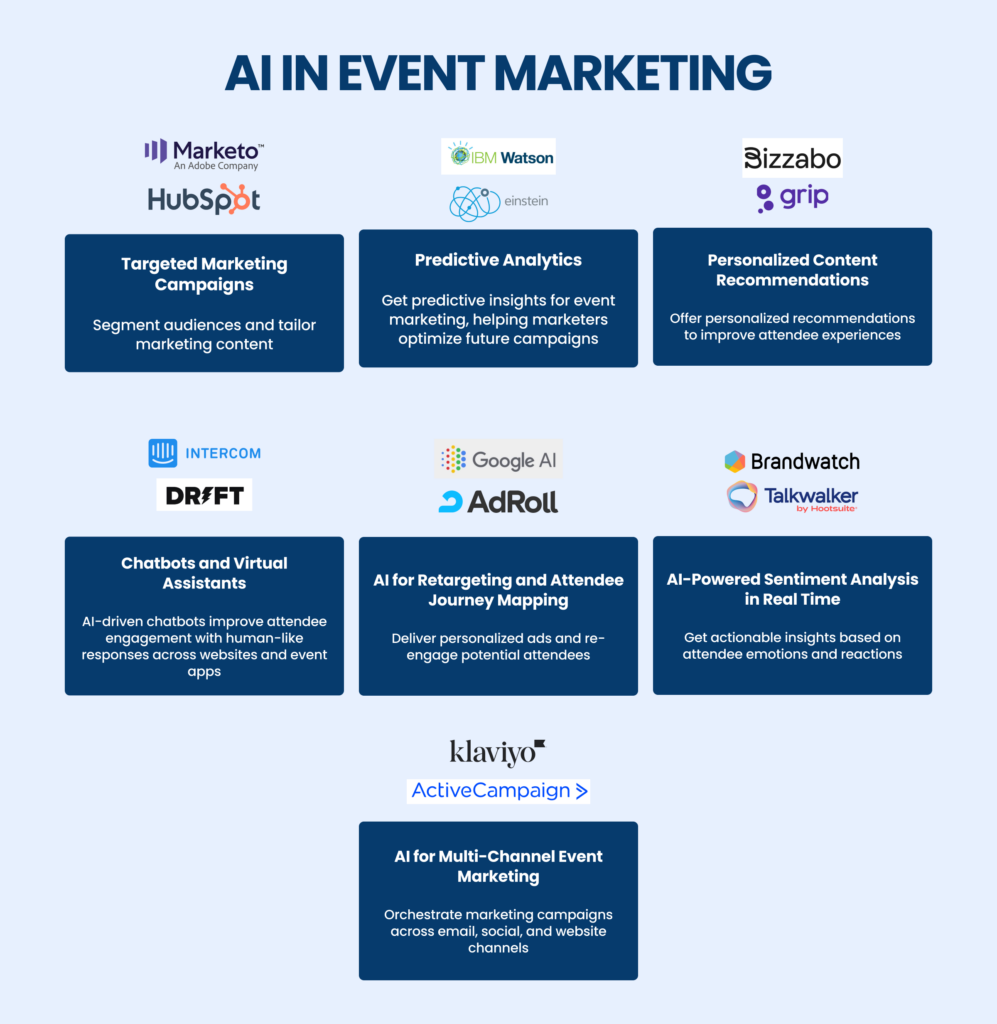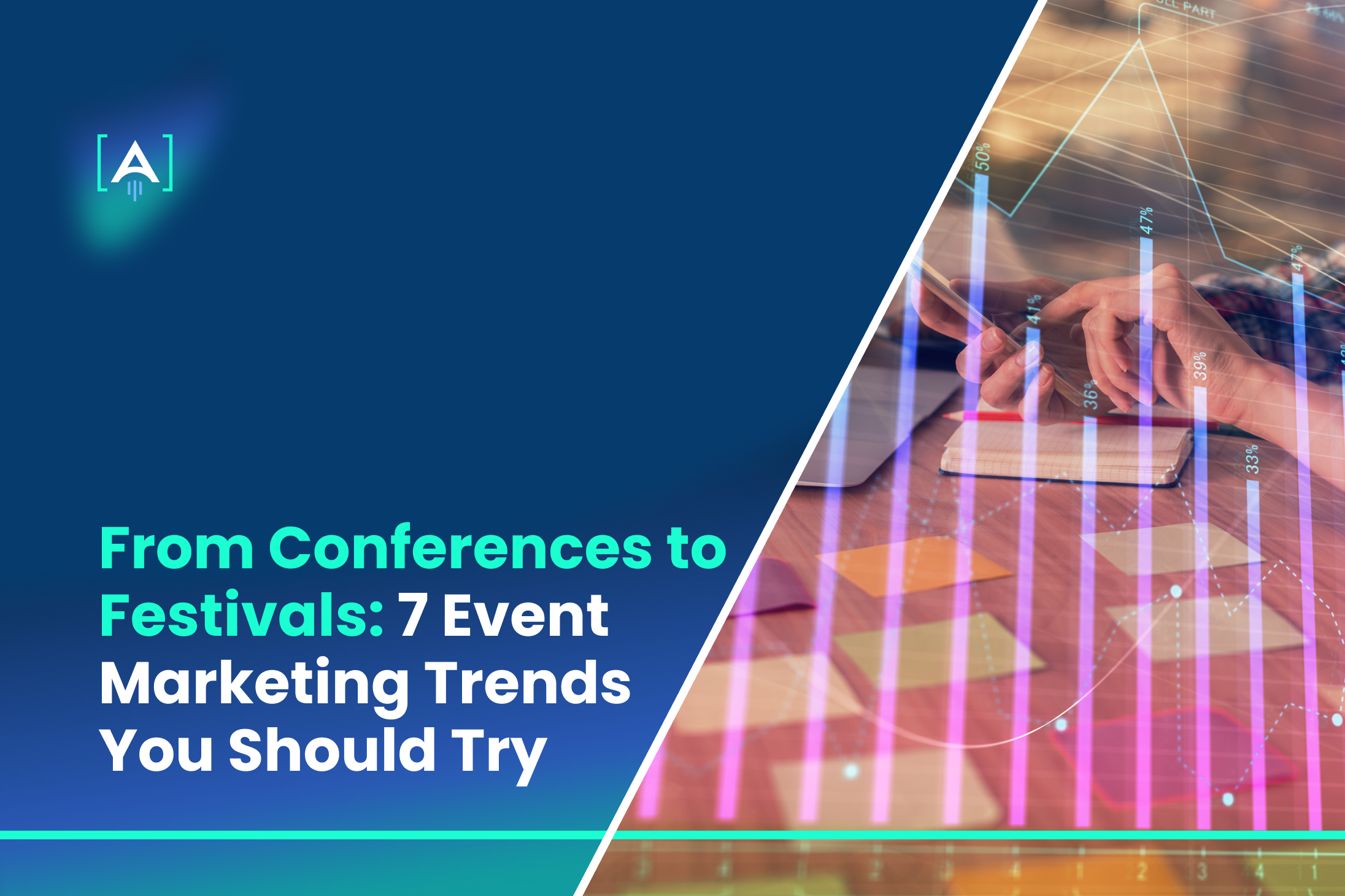Event marketing has become a game-changer in today’s business world.
What once revolved around traditional conferences has now expanded into various dynamic formats like webinars, expos, seminars, and even immersive festivals.
These events aren’t just about gathering people—creating memorable experiences that drive real customer engagement and business growth.
It’s easy to see why event marketing trends are so important.
Source: SWSW
Around 80% of people trust in-person events as the best way to discover new products and services.
Whether it’s an industry seminar or a large-scale expo, these events offer businesses a direct line to their audience, helping to build stronger relationships and lasting impressions.
From hosting engaging webinars to organizing massive expos, businesses can reach their full potential by working with a Growth Marketing Agency.
These agencies use trends in event marketing to ensure your brand attracts the right audience and maximizes the impact of every event.
1. Hybrid Events: The New Normal
Source: OMR
Hybrid events blend virtual and in-person experiences, allowing attendees to choose how they want to participate.
Whether it’s a conference, webinar, or product launch, hybrid events are a great way for companies to reach a wider audience and provide a more inclusive experience.

Since the pandemic, they’ve become one of the top event marketing trends.
More businesses are using this format to create inclusive and far-reaching events.
Paid vs Organic Strategies for Hybrid Events
Promoting hybrid events is most effective when you combine paid vs organic strategies.
Here’s how each works:
Organic tactics:
- Social media posts
- Email newsletters
- Blog content
- These help build long-term interest and trust in your brand.
Paid ads:
- Google Ads
- Facebook Ads
- These boost visibility quickly and drive immediate attendance.
Growth marketing often uses both approaches.
By balancing paid ads with organic efforts, they help businesses achieve maximum reach and drive more attendees and engagement.
2. Promoting Events with Email Marketing

Email marketing remains one of the powerful event marketing trends.
It makes it easier to keep your audience informed and excited about your upcoming webinars, seminars, or expos.
The real advantage of email marketing lies in its ability to deliver tailored, personal messages at a low cost, making it both efficient and effective for event promotion.
Source: Reallygoodemail.com
Why Email Marketing is Good for Event Promotion?
- It allows you to send personalized invitations to different audience segments, such as past attendees, VIPs, or new leads. This ensures the right message reaches the right people, increasing the chances of engagement.
- Unlike traditional advertising methods, email marketing is affordable. You can reach many potential attendees without the high costs of ads or print materials, making it an efficient way to promote your event.
- You see the open rates, click-through rates, and RSVPs, which helps you gauge interest and fine-tune your strategy for better results.
- Email allows for creative engagement. You can include event details, countdowns, and special offers like early-bird tickets or discounts, which helps keep your audience excited and encourages more sign-ups.
How to Use Email Marketing Effectively for Event Promotion?
- Segment your list: Group your audience into VIPs, past attendees, or new leads. Sending targeted emails lets you personalize messaging and make each recipient feel valued.
For example, offer exclusive access to VIPs or early-bird discounts for first-time attendees.
- Use a strong subject line: The subject line is your first chance to grab attention. Make it compelling by creating urgency or excitement.
For example: “Don’t Miss Out – Limited Seats Available!” or “Your Exclusive Invitation to [Event Name].”
- Include clear CTAs: Ensure every email has a clear call to action. Whether it’s a link to the registration page or a simple RSVP button, make it easy for recipients to sign up or learn more about your event.
- Send multiple reminders: Don’t rely on a single email to do the job. Start with an invitation, then follow up with reminders as the event progresses. Include updates like event schedules or special guest announcements to maintain interest.
- Leverage visuals: Incorporate engaging visuals like banners, images, or short videos to showcase event highlights, keynote speakers, or exciting activities. This helps your email stand out and keeps readers interested.
How We Promote Our Webinars at Azarian Growth Agency with Email Marketing
We use a strategic email marketing flow to engage our audience and maximize attendance when promoting webinars.
- We Send Pre-Webinar Emails: We start by sending out emails to our subscribers, including an initial invitation with a clear call to action for registration.
As the event gets closer, we send follow-up emails with reminders featuring updates to keep the excitement going.
We don’t stop after the webinar.
- We Send Post-Webinar Follow-Ups: We personalize our follow-up emails using Clay after the webinar.
For those who registered but didn’t attend, we send the webinar recording and slide deck, ensuring they don’t miss out.
- For attendees, we send personalized thank-you emails and additional resources to keep them engaged.
3. The Rise of Experiential Festivals: Immersive Marketing
Experiential festivals go beyond traditional events by fully immersing attendees in interactive experiences.
These festivals engage the audience more emotionally, allowing them to connect with a brand or product memorably.
Unlike standard conferences or expos, these events create an atmosphere where people can interact, explore, and experience something unique.
Why Are Experiential Festivals Popular?
The popularity of experiential festivals has grown rapidly because they offer more than just information—they offer a complete experience.
Attendees don’t just learn about a product or service; they get to feel, taste, or interact with it firsthand.
These events forge deeper bonds with the audience, increasing the chances they will remember the brand and remain loyal over time.
The Benefits of Experiential Festivals
- Deeper brand engagement: Immersive experiences help create emotional connections with attendees, making the brand more memorable.
- Stronger customer relationships: By providing interactive experiences, businesses can engage with their audience in a way that traditional events cannot achieve.
- Viral potential: When attendees have unique experiences, they are more inclined to share them on social media, which boosts your event’s reach and visibility.
How to Promote Experiential Festivals
Social Media Buzz
- Use engaging posts on platforms like Instagram, Facebook, and Twitter.
- Encourage attendees to share event details, teasers, or behind-the-scenes content.
- Utilize event hashtags to increase visibility.
Visually Appealing Content
- Create eye-catching visuals and videos that highlight key features of the event.
- Share sneak peeks of immersive activities, speakers, or special offers.
- Use professional-quality images or animations to capture attention.
Growth Marketing Agency Support
- Work with Growth marketing agencies to design a comprehensive event promotion plan.
- Utilize their expertise to ensure you reach the right audience across multiple channels.
- They can also track performance and optimize your marketing efforts.
4. AI-Powered Event Marketing: Maximizing ROI

AI-powered event marketing uses artificial intelligence to improve how you plan, promote, and execute events.
From automating repetitive tasks to offering personalized experiences, AI marketing helps businesses run more efficient and impactful events.
It’s a key tool for maximizing AI ROI in today’s digital landscape.
How AI Improves Event Marketing?
- AI analyzes large datasets to pinpoint people most likely to engage with your event. This allows you to tailor your messaging, making your marketing more effective and ensuring you reach the right people.
- AI tools can recommend event sessions based on past behavior or preferences, making the event more engaging and relevant to each participant.
- AI tools can also automate repetitive marketing tasks like sending emails, tracking registrations, or following up with attendees. This frees up time for your team to focus on more strategic activities while AI takes care of routine tasks.
5. Harnessing the Power of Influencers for Event Success
Source: Statista
Influencers hold significant power when it comes to promoting events.
So, this is one of the most important trends in event marketing.
They have loyal followers who trust them, making influencers perfect for promoting your event.
Whether it’s a conference, webinar, or festival, influencers can create buzz and excitement around your event, driving more attendees and engagement.
How to Leverage Influencers:
- Select influencers whose content and audience match your event’s theme or target group.
- Use them for pre-event promotion, during the event (live updates), and post-event follow-ups.
- Collaborate on giveaways or ticket promotions to increase engagement.
6. The Power of Content and Storytelling for Events
Content marketing transforms an event into a full experience that starts before the event and continues long after.
It’s one of the event marketing trends that always remains relevant.
It’s not just about keeping people informed—it’s about involving them in the story of your event.
You create touchpoints that make your audience feel involved at every step by offering valuable content like insightful blog posts, behind-the-scenes videos, and timely updates.
Source: Courtside
This approach does more than deliver information.
It sparks excitement before the event even starts, keeps the momentum going during the event, and provides lasting resources after it’s over.
Through content marketing, your audience isn’t just attending—they’re becoming part of the journey.
How We Leverage Content Marketing While Promoting Webinars
When we host webinars, we don’t stop at just the event itself.
We create a series of supporting content to keep the conversation going.
Before the event, we generate blog posts around the topics discussed, providing our audience with a preview and added value.
After the webinar, we send attendees these resources and personalized follow-ups to reinforce the key takeaways.
Additionally, we build dedicated landing pages for each event, filled with detailed information, the speaker bio, and downloadable resources.
Source: Azarian Growth Agency
This allows participants to revisit the content whenever needed while providing a hub for post-event engagement.
7. Gamification: Making Event Participation Fun and Rewarding
Gamification, one of the most powerful event marketing trends, adds an exciting, interactive element to event marketing by blending game-like features into the experience.
It’s all about making your audience actively engage through challenges, competitions, and rewards.
Instead of simply attending, participants are drawn into a fun, rewarding journey that keeps them hooked.
How to Use Gamification:
- Pre-Event Engagement: Start the excitement early with challenges on social media or exclusive giveaways. For example, run a contest where participants who share your event details get entered to win VIP access or prizes. This builds hype and encourages early involvement.
- Live Event Interaction: During the event, engage attendees with real-time games like quizzes, polls, or scavenger hunts. For instance, give attendees points for attending sessions, interacting with speakers, or answering live questions, with rewards for top participants.
- Post-Event Rewards: To keep the engagement going, offer badges, discounts, or special content for those who actively participated. This gives people a reason to stay connected with your brand even after the event.
Why Gamification Stands Out:
- Deepens Participation: Instead of passively watching, attendees become part of the action, competing, earning, and engaging throughout the event.
- Encourages Social Sharing: People love sharing their achievements. When they win contests or top leaderboards, they will likely post about it, spreading your event’s visibility.
- Creates Memorable Experiences: Gamified events stick in people’s minds because they aren’t just another conference or webinar—they’re a fun, interactive experience people talk about and remember.
Key Takeaways: Event Marketing Trends You Should Implement
To make the most of today’s event marketing trends, take action with these strategies:
- Adopt Hybrid Events: Offer virtual and in-person options to expand your audience and increase engagement.
- Utilize Email Marketing: Build targeted email campaigns before and after events to boost attendance and maintain strong post-event connections.
- Host Experiential Festivals: Design immersive, hands-on experiences that create memorable moments and foster deeper brand connections.
- Leverage AI-Powered Marketing: Implement AI tools to personalize marketing, automate tasks, and track results for higher AI ROI.
- Collaborate with Influencers: Partner with influencers to expand reach and build trust with their audience.
- Create Compelling Content: Use storytelling and rich content to engage your audience throughout the event lifecycle, keeping them informed and excited.
- Incorporate Gamification: Add fun, interactive elements like challenges or rewards to boost participation and make your event more engaging.
Make Your Events Stand Out with Azarian Growth Agency
Now you know the latest trends in event marketing, it’s time to implement them.
At Azarian Growth Agency, we help businesses implement innovative marketing strategies to create engaging, high-impact events.
From crafting personalized email campaigns to leveraging AI, gamification, and influencer partnerships, we ensure every aspect of your event is optimized for success.
Our team works with you to maximize audience engagement and drive real growth.
Ready to elevate your event marketing?

